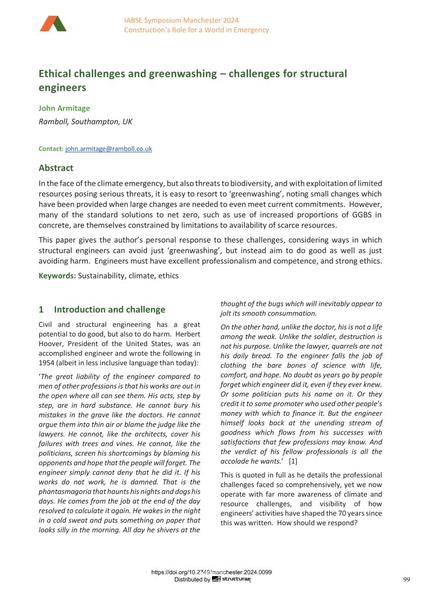Ethical challenges and greenwashing – challenges for structural engineers

|
|
|||||||||||
Détails bibliographiques
| Auteur(s): |
John Armitage
(Ramboll, Southampton, UK)
|
||||
|---|---|---|---|---|---|
| Médium: | papier de conférence | ||||
| Langue(s): | anglais | ||||
| Conférence: | IABSE Symposium: Construction’s Role for a World in Emergency, Manchester, United Kingdom, 10-14 April 2024 | ||||
| Publié dans: | IABSE Symposium Manchester 2024 | ||||
|
|||||
| Page(s): | 99-106 | ||||
| Nombre total de pages (du PDF): | 8 | ||||
| DOI: | 10.2749/manchester.2024.0099 | ||||
| Abstrait: |
In the face of the climate emergency, but also threats to biodiversity, and with exploitation of limited resources posing serious threats, it is easy to resort to ‘greenwashing’, noting small changes which have been provided when large changes are needed to even meet current commitments. However, many of the standard solutions to net zero, such as use of increased proportions of GGBS in concrete, are themselves constrained by limitations to availability of scarce resources. This paper gives the author’s personal response to these challenges, considering ways in which structural engineers can avoid just ‘greenwashing’, but instead aim to do good as well as just avoiding harm. Engineers must have excellent professionalism and competence, and strong ethics. |
||||
| Mots-clé: |
durabilité
|
||||
